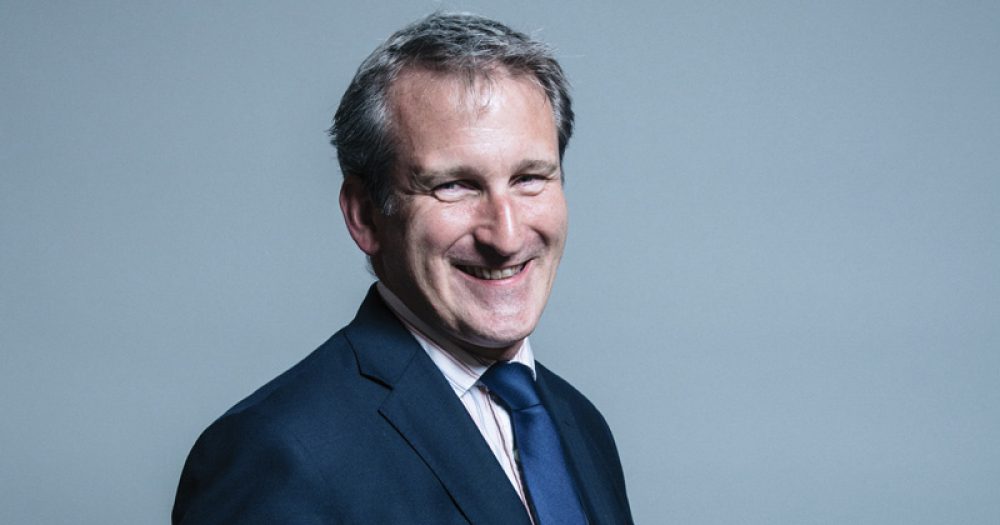Schools will get access to funding to improve behaviour and careers advice, the education secretary will announce today.
Damian Hinds is due to address the Conservative Party conference in Birmingham this afternoon, where he will set out his plans to create “a world class education for everyone, whatever path you take, whatever your background”.
However, very few of the announcements are new, and even those that are do not involve new money from the Treasury, so the cost of the programmes will have to be met from existing Department for Education budgets.
Here’s the full list of policies we’re expecting him to talk about.
1. £10m behaviour training fund and new guidance
This is one of the new announcements set to feature in Hinds’s speech.
The education secretary will set out plans to spend £10 million on “improving training on behaviour for teachers” to ensure they are “able to manage behaviour and thrive in their primary task of teaching”.
Ministers will also update government guidance on behaviour, which was last reviewed in 2015.
You can read more about it here.
2. 1,300 careers leaders in schools and 20 new employer networks
In its careers strategy, published last December, the government pledged £4 million to train a “careers leader” in 500 schools, and £5 million to set up 20 new networks to bring schools and employers together.
Hinds will announce today that a further £5 million will go into the scheme, extending the number of schools affected to 1,300 and creating another 20 networks, taking the total to 40.
The government says this will mean “more work experience, more employers visiting schools and colleges, more talk of careers in the curriculum and more young people acquiring the skills and qualifications they need to succeed”.
3. English hubs named
The DfE has named 32 schools that will split £26.3 million to become “English hubs”. This proposal was originally announced by Hinds’s predecessor, Justine Greening in January.
However, the number of schools involved has decreased since then. Greening originally said 35 schools would benefit. The reduction is yet to be explained.
According to the government, the hub schools were chosen “through a competitive process”, and all 32 “have a background of excellent phonics teaching and are distributed to benefit the areas that need it most”.
Each hub will be tasked with identifying specialist literacy teachers who will get additional training to act as experts in teaching in early language and reading from reception year to Key Stage 1. Each hub will work with up to 170 primary schools in their area “build a network of excellent phonics teaching in every region”.
The 32 schools are as follows, listed by region
Lancashire & West Yorkshire: All Souls’ CE Primary, Burley and Woodhead CE Primary School, Jerry Clay Academy, Outwood Primary Academy Lofthouse Gate, St John Vianney Catholic Primary School, The Greetland Academy
North: Lealholm Primary School, Orgill Primary School, St Michael’s C of E Primary School (County Durham), Westgarth Primary School
West Midlands: Childer Thornton Primary, Lacey Green Primary Academy, Little Sutton Primary School, St John Bosco Catholic Primary School
East Midlands and Humber: St Wilfrid’s Primary School, Witham St Hughs Academy, Whiston Worrygoose J & I School
South West: Broadclyst Community Primary School, Ilsham C of E Academy, Mangotsfield CE Primary School, Ramsbury Primary School, St Peter’s Church of England Primary School (Portishead), Trenance Learning Academy
South East and South London: Chesterton Primary School, Kingsnorth CEP, Springhill Catholic Primary School (Southampton)
South Central & North West London: Roade Primary School, West London Free School, Whiteknights Primary School,
East of England & North East London: Elmhurst Primary School, Grazebrook School, Myland Community Primary School
4. School sports action plan
This is just a rehash of an announcement made over the weekend. The proposed action plan will aim to increase opportunities for pupils to play more sports and train more teachers to lead and coach those opportunities in schools.
You can read more about that here.
5. More money for T-levels
The government will spend a further £38 million in its T-levels programme, a technical alternative to A-levels.
The money, available from spring 2019 for providers preparing to deliver the new qualifications from September 2020, will fund “the latest industry-standard equipment to ensure that qualifications meet the needs of employers”.
This will include computers and digital equipment for those studying the digital T-level, and heavy plant and machinery for those studying construction.
If you’re wondering what T-levels are and how they relate to schools, here’s a handy explainer.








Your thoughts